Movie-By-Movie: Terry Gilliam
The trials, the tribulations, the triumphs of Tel...
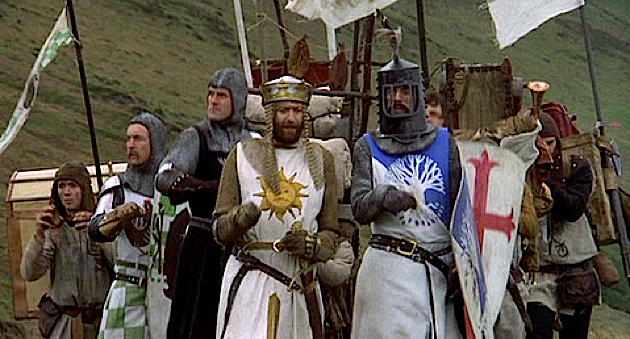
Monty Python And The Holy Grail (1975)
The Movie: With just a couple of (albeit brilliant and twisted) shorts under his belt, Terry Gilliam collaborated with Terry Jones to direct the Pythons’ first proper, non-show-based stab at film.
Despite cancelled locations, awful weather, team squabbles and a drunken, often forgetful leading man in Graham Chapman, the final result is a ramshackle but hilarious collection of comedy moments that work well together despite themselves.
Terry’s Trials: Though they were old friends and workmates, Jones and Gilliam had very different directing styles. In the end, frustration boiled over and Jones would end up the sole voice behind the camera for the team’s other films.
“Terry and I tended to agree on most things, until we actually started working together and then we discovered we didn't agree quite as totally,” laughs Gilliam.
“And we both had a very similar view of the whole thing, we knew what the look we wanted, all of those things. The real difference came in that I've got a better eye than Terry, is what it's about, I'm better at those things, and he's better at other things. I've got a better eye and ultimately that's how we ended up working it.
“So we split; I ended up being at the camera, and he worked with the guys, 'cause I having been in my little garret all those years my social skills were not as highly developed as they are now!”
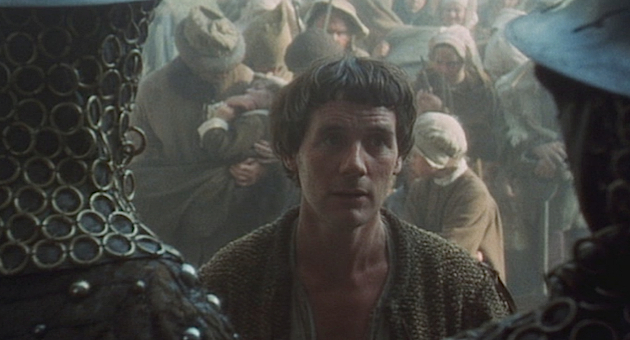
Jabberwocky (1977)
The Movie: As the director admits below, Jabberwocky feels more like a transition than anything else. Sure, it's bursting with his usual imagination and visual flare, but it’s also decidedly silly and immature in places.
Terry’s Trials: While the shoot was largely trouble-free in itself, the tone began to vary wildly from Gilliam’s initial thoughts of a grown-up medieval fantasy to something between Python and a kids’ film.
"I don't think we were bold enough when we wrote the thing; there are certain areas which are very Pythonesque in it, and we didn't completely make the break from Python. It was like a transition film - it went half-way to where I wanted to go.
“I think the thing is full of wondrous bits and pieces; I'm not convinced we got it flowing as well as it should have, but there's some moments that I think are just wondrous in it. Unfortunately it was sort of hoisted by the Python petard and at the time the reviews just couldn't look at it without judging it against Holy Grail, which was arrogance on my part, to think that it wouldn't be judged like that."
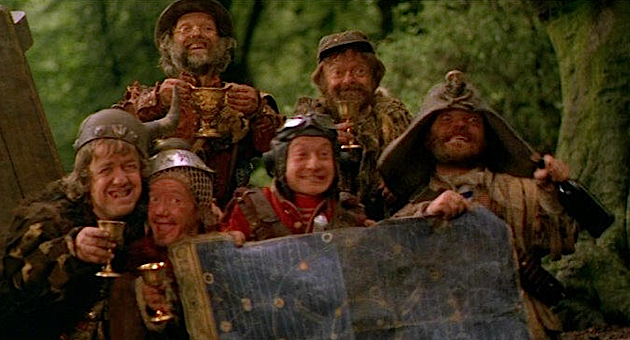
Time Bandits (1981)
The Movie: Determined to get Brazil made, Gilliam needed something substantial to back him up when he pitched the dark corporate totalitarian fantasy. So he and Michael Palin dreamt up this crazy family fantasy.
It’s got plenty of darkness (see below), but it’s also truly funny and rewarding, loaded down with great characters brought to life.
Terry’s Trials: The actual production went okay, but the troubles began when Gilliam was forced to confront the realities of test screenings.
“The only big battle I was having was over the ending. The idea of a children's film where the parents blow up was not possible. And we had a screening in Fresno, California, one of the NRG screenings where they hand out the cards that you fill in.
“It gives the audience the chance to have power over the filmmaker, and they really grasp that power! But something was wrong with the print — it was either the Dolby print or it wasn't a Dolby print but it went through the wrong sound system — and so the first third of the film sounded like mmphfhphm mfhbmle thfmphfl mpthmfswmem — people were leaving.
“Now on the questionnaire — and this is stuff that every filmmaker has to go through, dealing with these statistics that come at the end — when the audience votes, one of the questions is, 'What is your favourite part of the film?' And one of the answers was, 'The End.'
I took the cards home and it was clear that because of this terrible sound system and so many people leaving, the part they liked best about the film was the end — it was over, is what they meant.
“But when you saw the statistics the next day, the part that was most loved about the film was the end — which was the parents blowing up! And so I won and got the parents blowing up.”
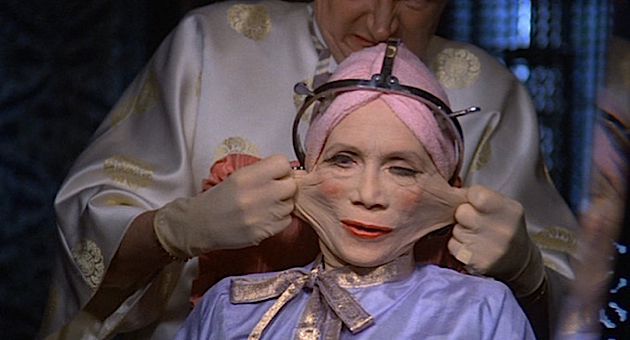
Brazil (1985)
The Movie: After a quick diversion back into Python-land to make the Crimson Permanent Assurance pirate short that appears before – and crashes into – The Meaning Of Life – Gilliam got to work on what would become his undisputed masterpiece.
Continuing his obsession with corporate culture and faceless bureaucracy (which he’d tackled in a sideways fashion with Jabberwocky), Gilliam, along with co-writers Charles McKeown and Tom Stoppard poured his guts into the film and it shows – it’s dangerous, atmospheric and brilliant.
Terry’s Trials: Did he have problems with it? Um… just a little bit.
“Universal at the time was far closer to the bureaucracy that was portrayed in Brazil — they were just stunned by it. And they didn't know quite what to make of it."
“Even though the script was shot as approved and all of those things, they just weren't sure, because they're very nervous people. They're paid enormous sums of money to be able to predict exactly what the public wants. And I think that can lead to real neuroses on their part because it's an impossible task.
“And so their immediate reaction was a nervous one: ‘We're not sure what we've got, so let's try to change it into something that we do understand.' And I refused to play ball with them. I said, 'Sorry, this is the film that we agreed to make.' And then it got into this legalistic argument.
The only thing they really had over us was the time clause, and that's what they used to try to make us change the essence of the film.”
You likely know the rest – the studio produced its own, butchered, “Love Conquers All” happy ending version, Gilliam went to war to make them release his take. He won…
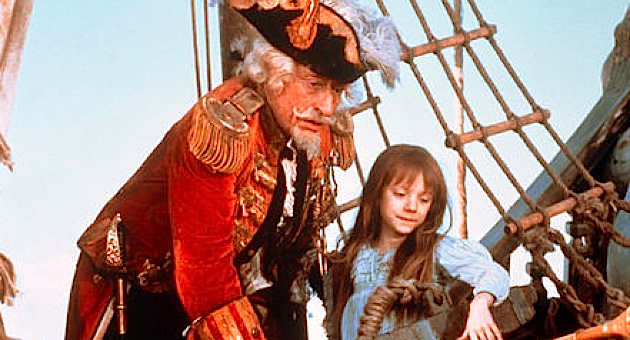
The Adventures Of Baron Munchausen (1988)
The Movie: It should’ve been a no-brainer for Gilliam – a rich epic loaded with comic possibilities and weird creatures.
But somewhere along the line, the huge film the director had in mind crashed into the reality of movie-making budget considerations and the scars are still evident – Munchausen is too messy, too random and while it looks amazing, the story is seriously lacking.
Terry’s Trials: "I remember when we could not figure out exactly what should go - it was the eleventh hour and two days before crisis point,” says the director.
“Film Finances were going to sue me for fraud. I found that amusing considering the subject matter we were dealing with. But when they started getting really heavy, David Tomblin, my assistant and associate producer suddenly called and said ‘Call your lawyer, the game's up!’
“Charles McKeown got so angry about it we shot through the script in less than an hour and came up with revisions the financiers found acceptable. Telexes, cables and memos were flying about in all directions and at one point a Film Finances guy pissed me off so much, I punched out a car windscreen.
“I couldn't believe I'd done it or let the situation get so out of hand. I felt I had reached the end and laughed at the threat of replacement by lower echelon directors because, by this stage, they were welcome to it. No one would have touched it with a barge pole. I became a hostage director."
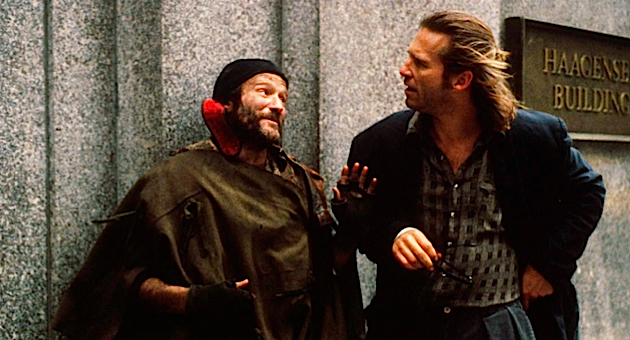
The Fisher King (1991)
The Movie: Recovering from Munchausen, our hero really just wanted to make something small and simple. The Fisher King, written by Richard LaGravenese, seemed to fit the bill perfectly.
And it works – somehow Gilliam’s inherent flights of fancy mesh with the story of downtrodden DJ Jeff Bridges and the crazy man with a crusade (Robin Williams) that end up helping each other.
Terry’s Trials: It was a largely trouble-free shoot, especially compared to the likes of Munchausen, but Gilliam did note some hiccups:
“The last couple of days were very silly where we're doing a close-up of Jeff in front of Carmichael's townhouse, against those stairs which were built in California, with all of Madison Avenue behind us, with buses.
“The noise was unbearable, it was ruining sound takes. And I used to laugh at people who did things like that, it's ridiculous; you could do that close-up in LA — just bring the wall back.
But we ended up doing it because everybody's fired up, you've got to do it. We did close-ups with the Knight on Fifth Avenue, and what you see on film, I'm not sure if you know it's Fifth Avenue, which is very, very bad. But it's to do with the fact that you get away with it, is why you do it.”
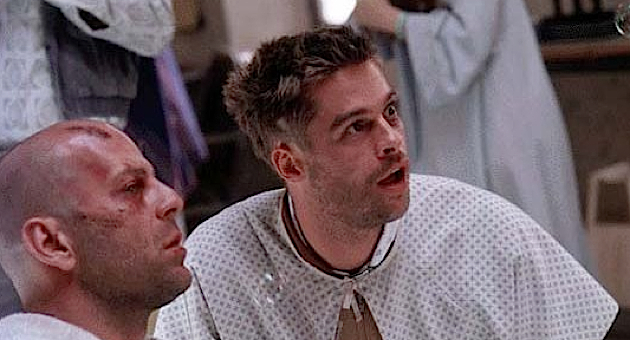
Twelve Monkeys (1995)
The Movie: Despite the legendary struggle over Brazil, Gilliam returned to Universal for Monkeys, which saw him take another step up in terms of star power, with Bruce Willis And Brad Pitt nabbing the lead roles.
The time travel paradoxes become a little twisted in on themselves, but Monkeys still successfully blends the intriguing look Gilliam always brings with the sci-fi hook.
Terry’s Trials: Another relatively strife-free shoot, but some different challenges.
"It's a very different experience working with stars,” Gilliam set at the time.
“I'm not used to the American system that allows stars incredible latitude. They're just not used to working the way we used to work in England, where we're just more matter-of-factly getting on with it. Here, people are frightened with the success of successful people. It's much more hierarchical, there's more fear in the air. It's odd."
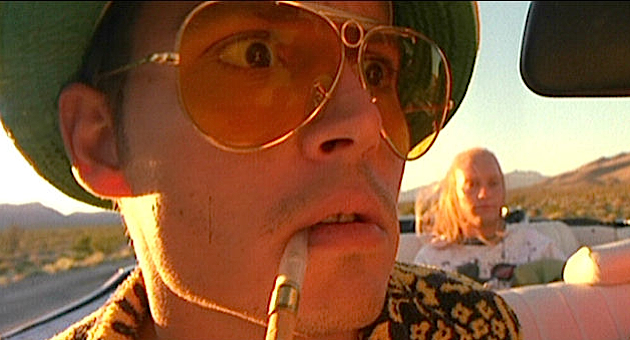
Fear And Loathing In Las Vegas (1998)
The Movie: Never one to back down from a challenge, Gilliam suits up for a book adaptation that had defeated Martin Scorsese and Oliver Stone and had seen Alex Cox fired by the producers of this latest version before El Tel was brought aboard.
It’s a long, strange trip that captures gonzo god Hunter S Thompson’s rambling prise and, in Johnny Depp, his wacked-out personality, even if the film itself never quite gels.
Terry’s Trials: The biggest issue was trying to get permission, apparently… “Cooperating with our vision wouldn't gain the hotels much! We ended up with a couple of the old hotels that, for whatever reason were at least accommodating enough to let us shoot there. We were only able to shoot inside the Riviera and inside the Binions.
“The Riviera was actually very accommodating. And as far as exteriors, the Palace Hotel we converted into Bazooka Circus. We had to wheel in this 20-foot-high clown head, which is a huge open mouth as our entrance. Then they'd got six lanes of car in the entranceways for cars to come in and disgorge the clients, and we were allowed to use two lanes at any one time.
“So we were dancing around a casino that was functioning. And so that was all very difficult stuff. And each thing we had to get done in a night; we were not allowed to come back anywhere!
“Our problem was trying to make a Vegas that looked like Vegas in 1971. We were very limited in what's there that we could use. The key shot that establishes Vegas, the majority of it is computer generated.
“The Mint Hotel doesn't exist any more, so all of that had to be recreated. Circus Circus, which in our script is 'Bazooka Circus' (because Circus Circus wouldn't let us near their place), we had to build all that. It was great because we were able to take it much further than the reality.”
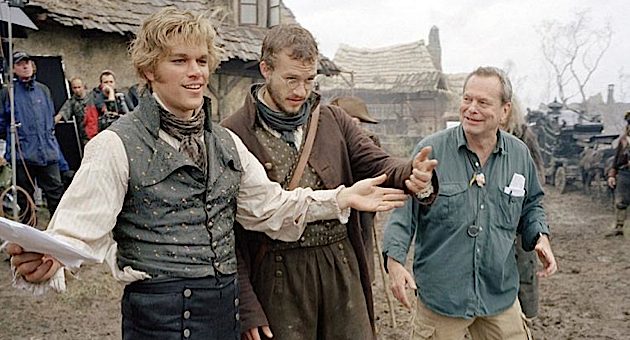
The Brothers Grimm (2005)
The Movie: A long break between films (partly forced by the collapse of The Man Who Killed Don Quoxote), but sadly his return to big studio filmmaking – well, Miramax/Dimension – didn’t exactly turn out to be a solid return.
Trouble with the movie (see below) and a frankly dodgy script resulted in something that has small moments to enjoy (particularly the banter between Heath Ledger and Matt Damon) but very little else. Mighty = fallen.
Terry’s Trials: “They’re always a fight! I don’t know if it has to be. I’ve made films that weren’t fights, but they tend to get the adrenaline going,” Gilliam told us at the junket. “A fight tends to clarify what’s important and not important to me. If you’re fighting for something – ‘Okay, I’ll give you that, but I’m going to keep that,’ – it’s not the worst thing to happen, but I don’t particularly enjoy them.
“We had casting fights and there were some make-up things and a few other things like that. I remember saying to Bob Weinstein, ‘listen Bob, we’re both independent, we’ve both been successful in our own way, we both think we’re right. This could be a difficult marriage...’And to give them their due, most of the time when I’ve dealt with studios, there’s nobody there that believes in anything strongly enough, so you can work your way around them. But it wasn’t the easiest…”
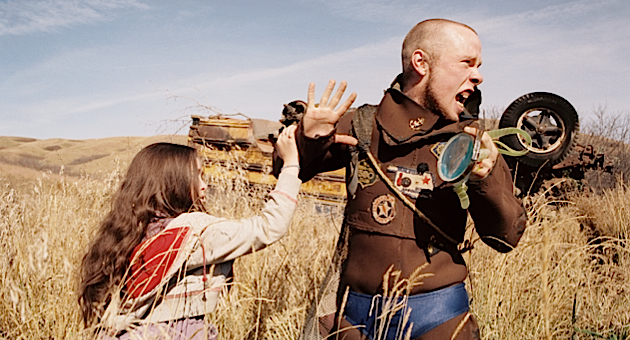
Tideland (2005)
The Movie: Oh, dear… It was primed as Terry’s return to stress-free indie movie making, with a low budget, lowered expectations and zero studio meddling.
But for all Tideland’s commitment to its creepy tone, it meanders and gets lost in the weird world, never finding its way back to watchability.
Terry’s Trials: Though the result didn’t exactly set the world alight, Gilliam clearly enjoyed making it.
“We were away from the world. It was a great crew. And we just did it. There weren’t any problems. The whole thing was so easy, luckily. It’s proved to be difficult selling the film; it was difficult getting the money. But the making was a breeze.”
“The thing that got the adrenaline going was that we were up against a schedule, weather, and all those things. But as far as fights about the content or who was in it, any of that? Nothing. And that was a joy!”
Wish it had been for the rest of us…
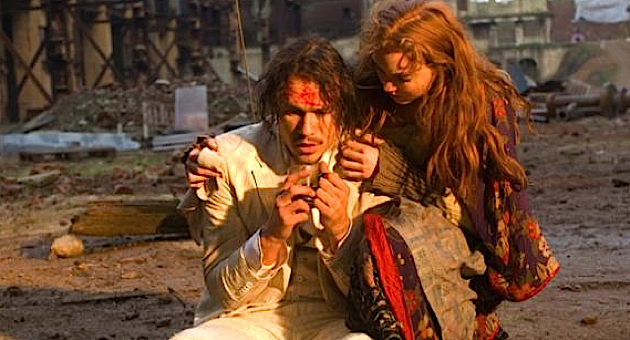
The Imaginarium Of Doctor Parnassus (2009)
The Movie: It’s out this week – you can read our reaction for yourself.
Terry’s Trials: The loss of Heath Ledger was almost the end of the film – but thanks to some help from the likes of Johnny Depp, Jude Law and Colin Farrell, it got finished.
“Providence intervened,” Gilliam says. “I had to be incredibly pragmatic after Heath died. It wasn’t easy. But there was a sense of freedom: I would think, let’s try that because if we don’t do something we’re dead in the water, and if we try that it might work, it might not. Heath took a certain responsibility off my shoulders by not turning up for work.’”
“On top of everything else, we were in mourning. 'This was a deeply loved human being, and he’s not there any longer. Except he was there, on the screen. We’d go into the editing-room every day and say, Heath, you bastard, you really stuck me in the shit here. It was a misery, but turning Heath into the bad guy was a nice way of grieving. But, oh shit, look how good he was!
“Johnny, Jude and Colin, they all did their job brilliantly, but what we’ll never know is what the effect of the film would have been if Heath had played all of it: when the audience suddenly realises how horrible he is – what would that have been like? Because there’s something so sweet about Heath."
James White is a freelance journalist who has been covering film and TV for over two decades. In that time, James has written for a wide variety of publications including Total Film and SFX. He has also worked for BAFTA and on ODEON's in-cinema magazine.


